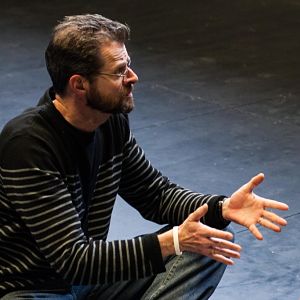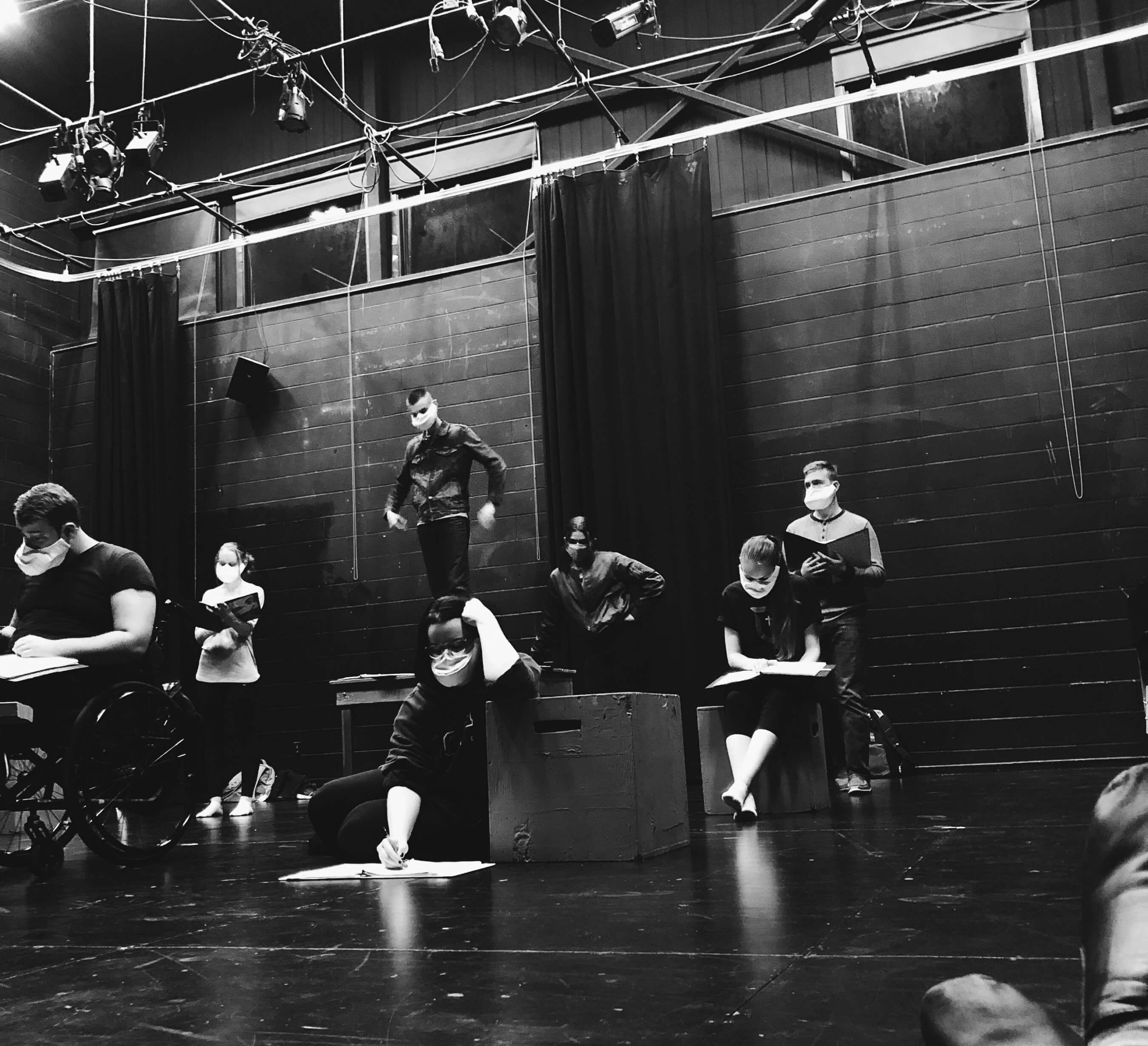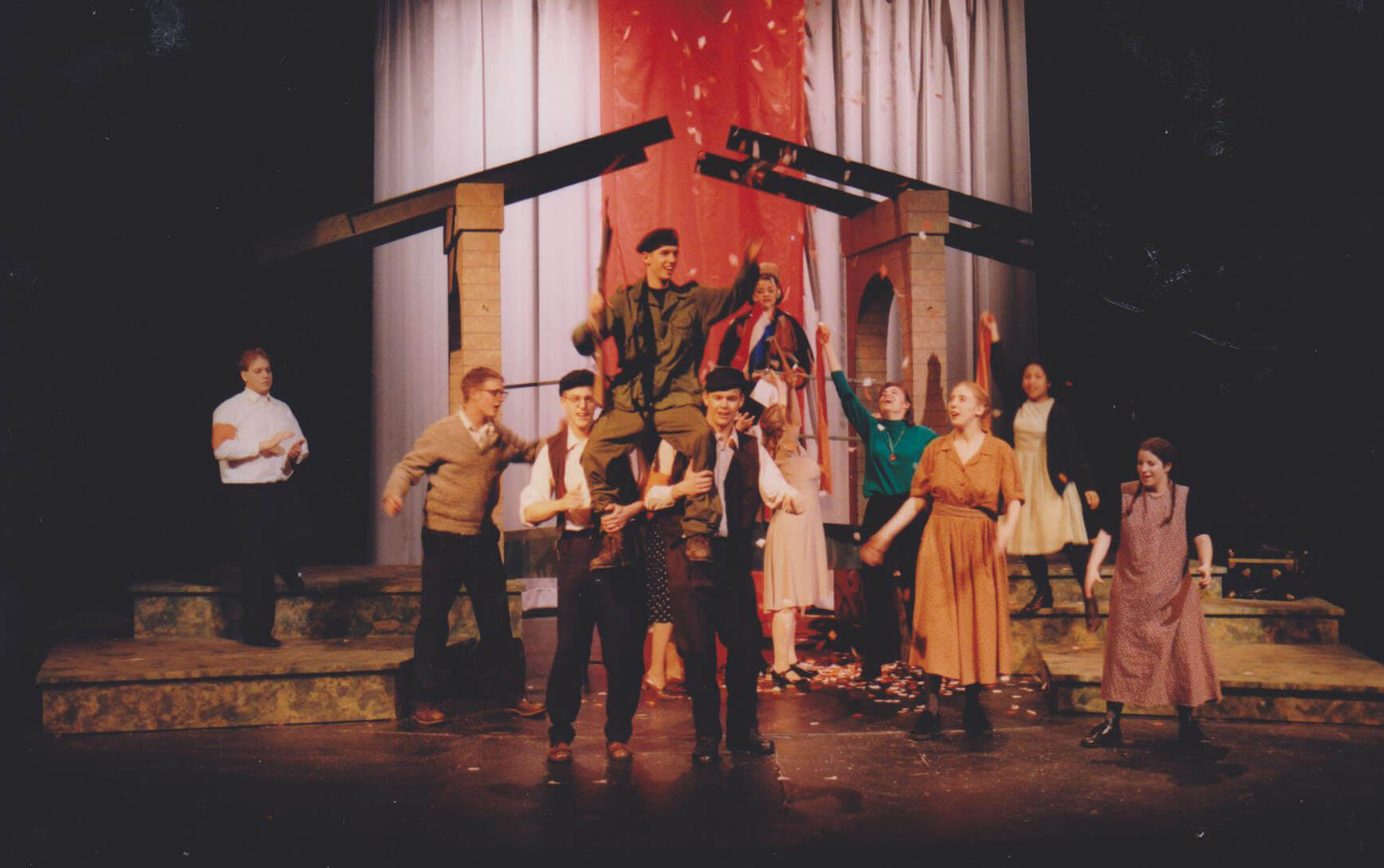Ray Louter taught theatre arts at Redeemer for 35 years, nearly as long as it has operated, until painful cuts to the department saw his position come to an end. But his lengthy Redeemer career gave him a special window into the history and stories of Dutch liberation and immigration to Canada that characterizes much of Redeemer’s founding community.
During the mid 1990s, around the 50th anniversary of the liberation of the Netherlands, a conversation began on Redeemer’s campus that culminated in what would eventually become three different versions of Louter’s play Stranger in the Land. First performed in the mid 1990s, the play was reworked and performed again in the late 1990s and again in 2020 as a YouTube premiere during the COVID-19 pandemic.

“The idea came about that we should do something theatrical,” says Louter. He began to meet with people on campus to gain an understanding and appreciation of what happened during the war and subsequent liberation of the Dutch people. “It turns out that there was quite a storehouse of stories on our campus and some of the stories became key threads in the final version of Stranger in the Land.” One of these such stories was the connection between Redeemer’s founding president Dr. Henry deBolster and his brother who were both involved in the resistance in the Netherlands during the war. Their story was depicted through the play’s characters Harm and Hilde.
Louter says he wrote the original version of the play as a docudrama. “I had so many stories to tell that docudrama was a good way to get them all in. It’s not really the most effective theatrical kind of storytelling, so when I did a second rewrite that focused those stories, I eliminated some of them. The final rewrite was the most taut dramatic structure. When you write something and craft something more intentionally, then it becomes much more about the muscles and tendons that hold a whole play together. They are much clearer in this last version.”
The second and third iterations of the play also saw an evolution of its characters. This was perhaps most significant for Anne, the character that Louter says was the construct that pulled all the stories together. “The character of Anne needed to be rationalized more. She needed to have a stronger purpose,” Louter explains. “She was kind of a tourist, a lecturer before… In the second version she was a sufferer of generational trauma. Her father committed suicide. She has dreams and she brings the stories of the play in as a way of coping with her loss. She dreams of images of a war that she was never part of. She goes from being a lecturer, to someone who is seeking healing… Her whole body is wounded by the events of the past.”

As he developed Anne’s character for the final version of the play, Louter drew parallels to Indigenous peoples and the trauma and suffering they have experienced. “As I was writing this, I was thinking about the aftermath in Indigenous communities of residential schools and the harm of the post-colonial time. We know now that your DNA changes when you’re traumatized. Your body records it and it passes it on to your children. So the prevalence of depression, suicide, self-harm in communities that are historically stricken with poverty and violence is no surprise to us.”
When reflecting on the impact of the play on its audiences, Louter recalls the popular appeal of the original play, performing before audiences of 600 to 800 people. “We had people say, ‘this is our Fiddler on the Roof.’ I get it. I get that feeling of a bit of nostalgia for the past without too much sugar coating,” he said.
He remembers a post-show discussion where a local minister shared his identification with the scene in the play where food drops happened. He shared how as a little boy, bombers came over his Dutch town delivering not bombs, but food and that it had saved his life. Then another older man stood up and shared that he was a navigator on Lancaster and had been one of the ones dropping that food. “I mean that was so amazing! These two little historical paths that met together at the theatre and connected that night. There was just a hush, a hushed sense of the holy in the people that were there.”
It’s evident that Ray’s passion for theatre had an impact on many inside and outside the Redeemer community.
For the students involved in the latest version, Stranger in the Land struck even deeper. Louter feels that they understood that it was a story about intergenerational trauma and navigating the differences that unfold between us as we grow and change. He says it was a particularly interesting challenge for the student who played Anne to get into character. Severine Salvador is from Brazil, so she did some interesting things to try to get into the mind of a Dutch character. “For her to get inside of Anne was really interesting and beautiful to watch,” he said. “She just gave herself over to it. It is a challenge for an actor to actually imagine themselves into trauma, prison, starvation, all the hard things of the war, which they need to do because they also need to perform the end of occupation and being well fed and getting out, so to find that kind of range was hard, and beautiful for me to watch.”
Stranger for me has been a gift. It’s been a gift to be able to write and to know that my writing was going to be on stage… That’s a rare gift for playwrights.
Louter has an obvious love and appreciation for theatre and for the students he worked with for so many years and this is reciprocated by many students who were shaped and mentored by him.
“It’s evident that Ray’s passion for theatre had an impact on many inside and outside the Redeemer community,” said interim president Dr. David Zietsma. “He is a great writer, storyteller and teacher and we are grateful for the years he invested himself in students and for the stories he helped them to explore and share. The Redeemer community will miss his presence and creativity.”

While Louter’s sadness upon losing his position is apparent, sharing grief for both his personal loss and the loss of Christian voices in theatre training, he too has much gratitude for his time at Redeemer. “Being at Redeemer gave me the space to develop that play,” he says of Stranger in the Land. “It gave me a built-in audience and the resources to explore the ideas of the story.”
“Stranger for me has been a gift. It’s been a gift to be able to write and to know that my writing was going to be on stage… That’s a rare gift for playwrights. This was an important part of my development as a writer and as an academic to be able to do that.”
View the 2020 recording of Stranger in the Land on Redeemer’s YouTube channel.